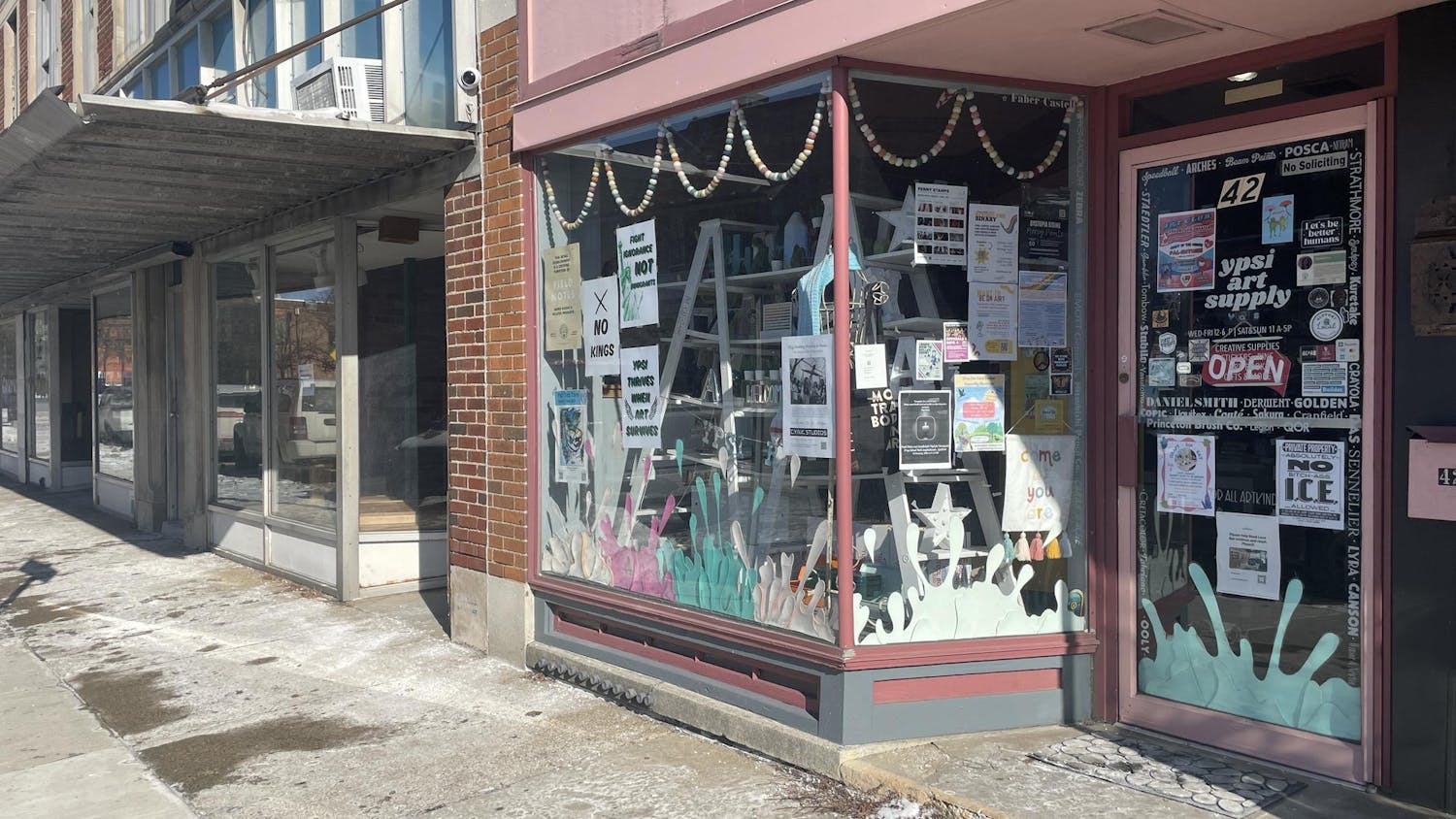Freelance journalist Alison Weir, founder and executive director of the Web site and non-profit organization “If Americans Knew,” will be coming to Eastern Michigan University’s campus.
She will speak about the Arab-Israeli conflict from 12 to 2 p.m. tomorrow in room 310B of the Student Center.
Weir has been covering the conflict since 2001 when she said she began to notice, journalistically, highly Israeli-centric reports.
“In American media, you primarily hear about Israeli deaths in high detail and very little about Palestinian deaths,” she said, “Even though many more Palestinians have been killed, and first.”
She said many Americans have come to believe the opposite because of these omissions. “It’s important for Americans to see the full picture, and on this issue we’re just not getting it.”
EMU Muslim Student Association President Yasmine Nahlawi agreed.
“I feel that media in America shows Israel’s point-of-view and our country supports Israel. The Palestinian point-of-view is overlooked. People just don’t know the other side of the story,” she said.
That’s why Nahlawi said she was glad to have Weir come to speak at EMU.
“We wanted to bring a speaker to show the other side of the struggle. Last year a speaker came in and addressed the political side with ‘Whose Land Is It Anyway?’ and we wanted to show the humanitarian side to the problem.”
Nahlawi said the MSA here tries to bridge gaps between people and educate the campus about who Muslims are as a people, and present the religion as something that can go hand-in-hand with American culture.
“The Board of Regents also approved for March of every year here at Eastern to be Explore Islam month. It’s very exciting.”
She said the speech was organized recently with help from Diversity and Community Involvement and from the political science, anthropology, history and journalism departments, which helped advertise for the event.
“We only started planning it about two to three weeks ago,” she said. “Alison was already coming to Michigan for the opening of a new chapter for her website in Flint so it was great that the opportunity presented itself to us.”
[The new chapter in Flint will be the second national branch for “If Americans Knew.” The organization, based in Oregon, also has a branch in Connecticut. Weir said people in Flint contacted her and wanted to form a chapter in order to better inform people in the area.] Her tour of Southeast Michigan is partially in celebration and support of the new chapter.
It happens EMU will be the first stop on the tour, where she’ll discuss the history behind the struggle in the Middle East, and mainly talk about her own travel in the West Bank, Gaza Strip and the general area. She will have a PowerPoint presentation and a short video clip and address the media bias problem as it pertains to the ongoing conflict.
Many people disagree with Weir’s work and journalistic approach.
“I’ve been threatened on several occasions,” she said. “The most explicit threat was while I was in California at the University of California in Berkeley. We had a fair debate, moderated by the Dean of Students. After the debate I received a phone call that said, ‘Me and my buddies trained by the Israeli military are going to come in and kill you all. Don’t come to work tomorrow.’”
“We contacted law enforcement, but they didn’t take the threat seriously until after a campus officer got involved.” Weir said. “After that the police were able to sweep the building and check the block. We went to the media, and wrote a press release about the attempt at intimidation and let the public know it wouldn’t work; we won’t be intimidated like that.
“When I got to work that day there was a whole crowd at the building. Even the Dean was there. She said she wasn’t going to allow a speaker on their campus to be subjected to those kind of threats.”
But the problems don’t stop there, she said. Her recent tour of Alaska included some opposition from the Consul General for Israel in San Francisco, who Weir said called the World Affairs Council of Alaska to encourage it to rescind her invitation to speak.
“There’s all sorts of pressure brought about to prevent people from hearing the facts about Israel,” Weir said. “But that still didn’t stop us from having a wonderful reception in Juneau and Fairbanks.”
She hopes that will be the case in Michigan as she travels throughout the week to area colleges, Islamic centers and lecture halls.
“It’s important for the generation in college now to see the fact that we’re impacting people in the Middle East in a very tragic and negative way,” she said. “And, as you know, if you impact someone negatively there’s a high probability that they will impact you negatively in the future. So it is for both practical and moral reasons that we need to be informed.”
The drain Israel puts on our economy is significant as well, Weir said.
“There are extreme economic consequences when the US is giving at least $7 million of tax money a day in support to Israel. It will certainly affect the generation that’s in college now. Through tax money and government policies it sort of entangles all Americans.”
Nahlawi’s view of the topic is also combines the practical with the moral.
“Once people realize the US supports a state with so many human rights violations I think that will make the political issue easier to solve.”
Both Nahlawi and Weir are hopeful for the future.
“I think that my hope is that the students in college now might be the generation that will take the actions that will finally bring peace to the Middle East and create a safer, more peaceful world for all of us,” Weir said.










